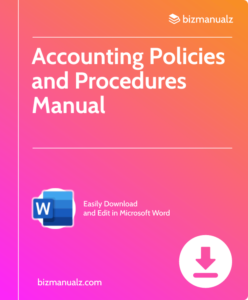What Does it Mean to be a Full Charge Bookkeeper?

Being a full charge bookkeeper entails much more than simply managing financial records. In this article, you will explore the multifaceted role of a full charge bookkeeper and gain an understanding of their responsibilities beyond basic bookkeeping tasks. Discover the diverse range of skills required to excel in this position and the vital role they play in maintaining accurate financial records for businesses. Delve into the intricacies of this profession and uncover the key components that define a full charge bookkeeper. What does it mean to be a full charge bookkeeper?
Definition of a Full Charge Bookkeeper
A full charge bookkeeper is a crucial position within any organization’s accounting department. They are responsible for maintaining and managing the financial records of the company accurately and efficiently.
Unlike other bookkeeping roles, a full charge bookkeeper handles all aspects of the financial process, ensuring that every transaction is properly recorded, categorized, and reconciled.
Responsibilities of a Full Charge Bookkeeper
The responsibilities of a full charge bookkeeper are diverse and encompass a wide range of financial tasks. These include handling accounts payable and accounts receivable, managing payroll functions, preparing financial statements, monitoring budgets, and ensuring compliance with all relevant laws and regulations.
Additionally, a full charge bookkeeper may be responsible for auditing financial documents, overseeing inventory management, and resolving any financial discrepancies that may arise.
Skills and Qualifications
To excel as a full charge bookkeeper, individuals must possess a variety of skills and qualifications. Firstly, impeccable attention to detail is crucial, as even the slightest error can have significant consequences for the company’s financial records.
Strong analytical skills are also necessary, as full charge bookkeepers must be able to interpret financial data and provide meaningful insights to support decision-making processes.
Additionally, excellent communication skills are essential, as full charge bookkeepers often interact with various stakeholders, including management, auditors, and vendors. An ability to work under pressure and meet strict deadlines is also vital, given the fast-paced nature of financial operations.
Education and Training
While a formal education is not always a prerequisite for a full charge bookkeeper position, many employers prefer candidates with at least an associate’s degree in accounting or a related field. Moreover, obtaining professional certifications, such as the Certified Bookkeeper (CB) designation offered by the American Institute of Professional Bookkeepers, can significantly enhance job prospects and credibility in the field.
Continual professional development is also critical for full charge bookkeepers. Staying informed about changes in accounting regulations, software advancements, and industry best practices ensures that full charge bookkeepers maintain their ability to perform their duties effectively and efficiently.
The Importance of Accuracy
One of the primary responsibilities of a full charge bookkeeper is to ensure the accuracy of financial records. Accurate financial information is vital for making informed business decisions, securing loans or investments, and meeting legal and tax obligations.
Errors in financial records can lead to significant financial losses for a company and potentially damage its reputation. Therefore, a full charge bookkeeper must meticulously record and reconcile all financial transactions, review data for accuracy, and promptly address any discrepancies that arise.
Effective Time Management
The role of a full charge bookkeeper often involves juggling multiple tasks and deadlines. Effective time management skills are crucial to ensure that financial records are updated regularly and reports are generated in a timely manner.
Full charge bookkeepers must prioritize their workload, allocate sufficient time for each task, and be highly organized. Developing efficient systems and utilizing task management tools can greatly assist in maximizing productivity and meeting deadlines consistently.
Managing Financial Software
In today’s digital age, full charge bookkeepers must be proficient in using various financial software and accounting systems. These tools help streamline the bookkeeping process, automate tasks, and improve overall efficiency.
Full charge bookkeepers should stay up to date with the latest financial software advancements and continuously expand their knowledge and skills in using these tools.
This includes understanding the functionality of different software, troubleshooting issues, and leveraging their features to enhance accuracy and productivity.
Preparing Financial Statements
Full charge bookkeepers have a key role in preparing financial statements. These statements include the balance sheet, income statement, and cash flow statement, which provide a snapshot of the company’s financial health.
Accurate financial statements enable management to assess profitability, monitor cash flow, and make informed decisions about budgeting and investment. Full charge bookkeepers must ensure that these statements are prepared in compliance with accounting standards and regulations, accurately reflect the financial position of the company, and are delivered within prescribed deadlines.
Handling Payroll Functions
Managing payroll is another significant responsibility of a full charge bookkeeper. They are responsible for ensuring that employees are paid accurately and on time, while also complying with payroll tax regulations.
Full charge bookkeepers must maintain detailed payroll records, calculate employee wages and deductions, and generate payroll reports. Additionally, they are responsible for remitting payroll taxes to the appropriate authorities, filing necessary reports, and staying informed about any changes in payroll tax laws or regulations.
Maintaining Compliance with Laws and Regulations
Full charge bookkeepers play a vital role in ensuring that organizations maintain compliance with relevant laws and regulations. This includes staying up to date with changes in tax laws, financial reporting standards, and industry-specific regulations.
Full charge bookkeepers must ensure that financial records are accurate, complete, and in compliance with Generally Accepted Accounting Principles (GAAP) or International Financial Reporting Standards (IFRS). They must also maintain a thorough understanding of local, state, and federal tax laws to ensure accurate tax reporting and submission.
In conclusion, being a full charge bookkeeper entails a wide range of responsibilities, including accurate record keeping, financial statement preparation, payroll management, and regulatory compliance.
Possessing the necessary skills, education, and training is crucial to excel in this role and ensure the financial stability and success of an organization. The importance of accuracy, effective time management, and proficiency in financial software cannot be understated in the pursuit of becoming a skilled and accomplished full charge bookkeeper.
















Leave a Reply